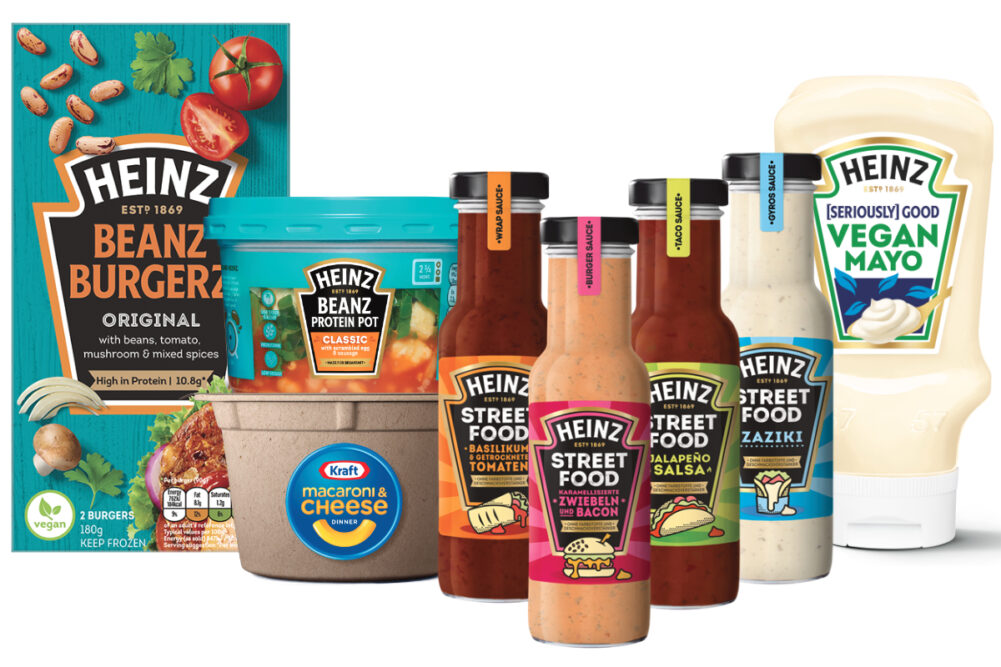CHICAGO – The largest businesses are often not the most agile. Kraft Heinz Co. management is embracing agility to navigate market shifts that may occur in the wake of the COVID-19 pandemic.
“The traditional view of Kraft Heinz is that we are a $26 billion global food and beverage enterprise with $6.7 billion in adjusted EBITDA,” said Miguel Patricio, chief executive officer, during a Feb. 16 presentation at the Consumer Analyst Group of New York virtual conference. “Our iconic brands hold No. 1 or No. 2 market share in most categories and countries where we compete, but we see ourselves differently through the eyes of our consumers.”
Building agility into the organization requires focus and the ability to innovate rapidly.
“We have prioritized 50% of our business to grow aggressively,” Mr. Patricio said. “In roughly 30%, we are investing to reenergize growth. And in the remaining 20%, we are investing selectively to stabilize sales.
“The second way we are building agility is running the business through a simple, new operating model, one that is very different from the way we operated in the past. We have completed the first year of a multiyear transformation. We are making Kraft Heinz more relevant and efficient, bringing innovative products to consumers much more rapidly.”
COVID-19’s impact on the retail market has accelerated Kraft Heinz’s turnaround and Mr. Patricio said that in the coming year the company will leverage its scale to improve and extend agility within the organization.
“We believe that those who win will be those who best anticipate evolving consumer preferences and are most agile in meeting those needs,” he said. “For Kraft Heinz, this means leveraging our agility and scale to better anticipate consumer discovery or rediscovery; cooking at home; the globalization of flavors coupled with the importance of local and authentic food; consumers getting more comfortable buying groceries online; and increasing consumer preference for brands that align with their values and their evolving views of healthier, more sustainable products.”
Brand renovation and innovation will play roles in Kraft’s transformation.
“This year, we will renovate more than 40% of our portfolio, building on the focus work started last year,” said Carlos A. Abrams-Rivera, president of Kraft Heinz’s US zone. “Further, our efforts will skew toward portfolios with grow and energize roles, which we believe will make the greatest impact on our top and bottom line.
“At the same time, we are building a pipeline of innovations to generate consumers' excitement and drive incremental purchases. By focusing our efforts, we’re increasing the percentage of meaningful innovations while also delivering significantly more impact per project.”
Examples of brand renovation and innovation include plans for Oscar Mayer and Kraft Mac & Cheese.
“In the first half of the year, we'll launch a master brand and omnichannel campaign backed by double-digit media investments,” Mr. Abrams-Rivera said. “This builds on Oscar Mayer product superiority and the brand's legacy of making generations of people smile.”
Later in the year, Kraft Heinz will introduce a fiber-based Mac & Cheese cup that is both microwavable and recyclable, Mr. Abrams-Rivera said.
“This new packaging is a delivery toward our commitment to make 100% recyclable, reusable or compostable packaging by 2025,” he said.
Mr. Abrams-Rivera added that Kraft Heinz expects to have 20% fewer stock-keeping units (SKUs) by the end of the year.
“More importantly, we expect this simplification initiative to result in a 25% increase in net sales per SKU,” he said.
On the cost side, Kraft Heinz plans to invest $100 million more in marketing support, with two-thirds of its media dollars focused on the digital channel.
“We’re also investing in future growth, going from double- to triple-digit CapEx investment to unlock constrained networks, increase format flexibility and solve for (a) systemic shift in foodservice,” Mr. Abrams-Rivera said. “By the end of 2021, we expect to have added 500 million lbs of capacity in two years. This is unprecedented for us.”





